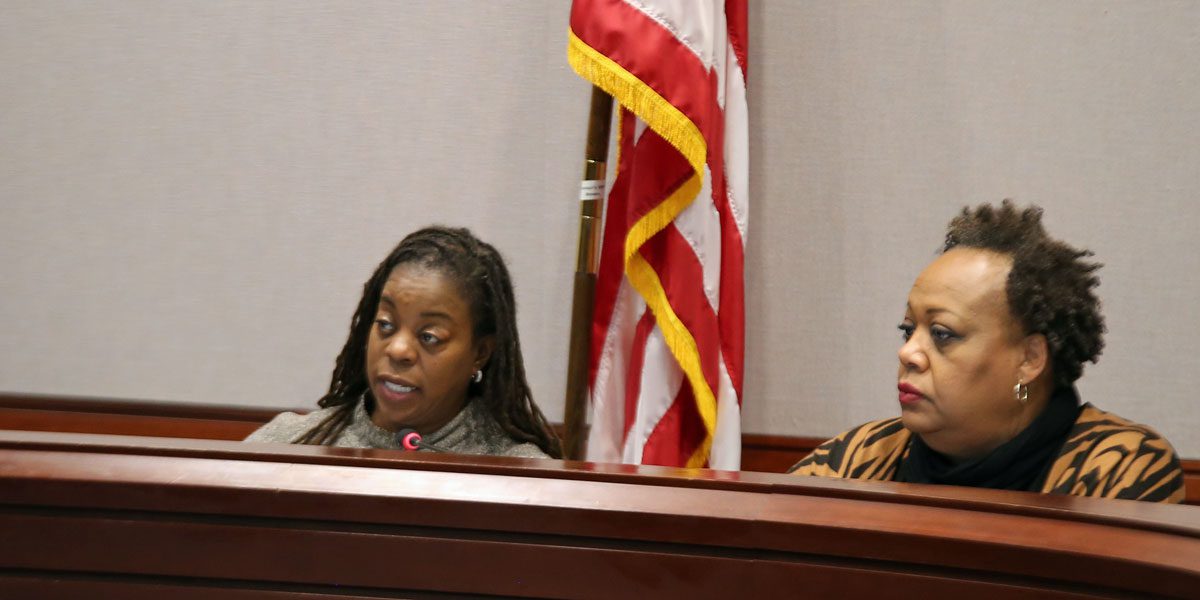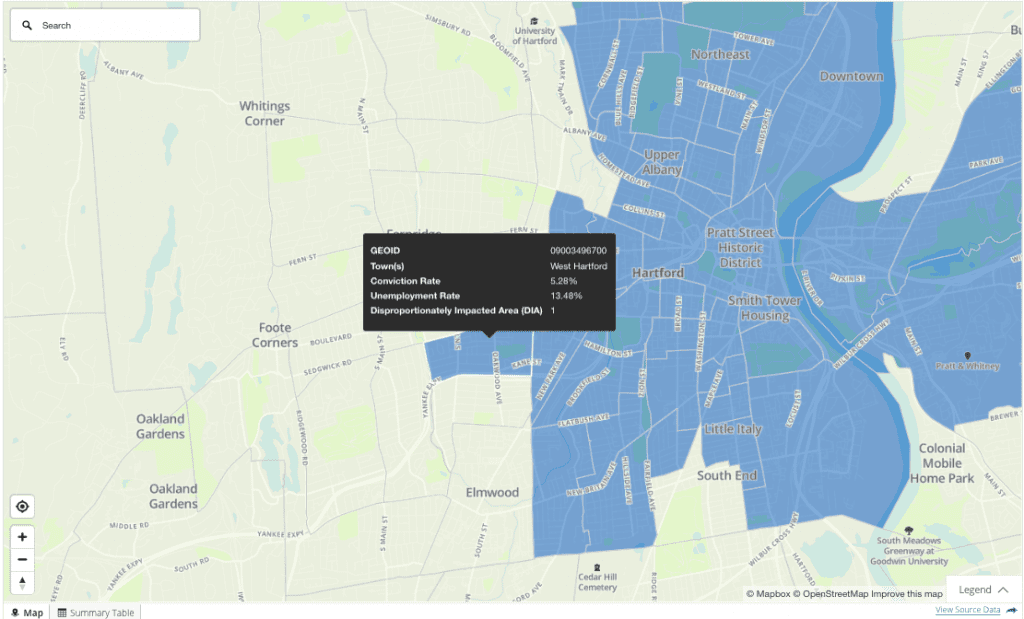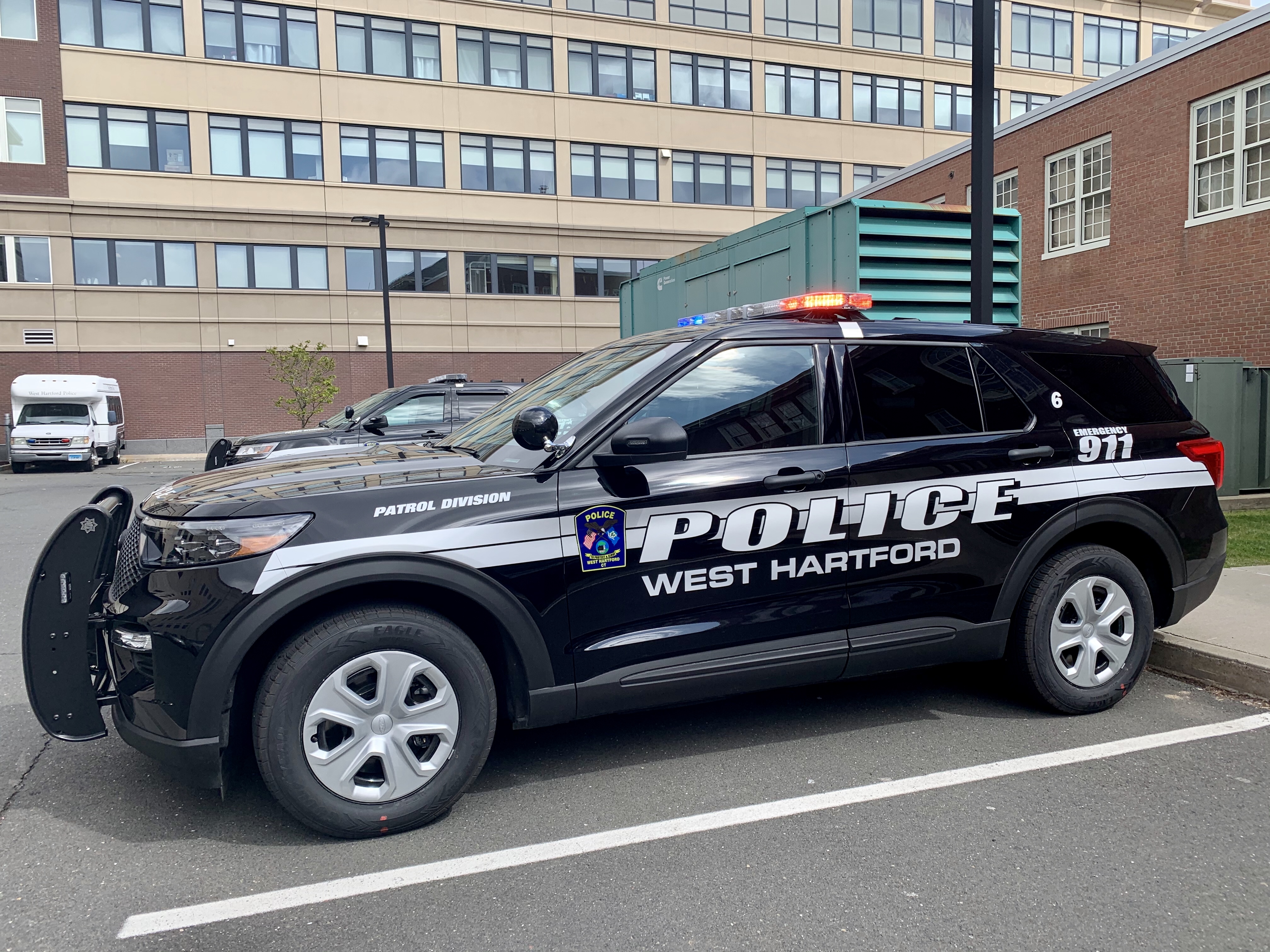Social Equity Council Recommends Delay in Cannabis Application Process

Audio By Carbonatix

Andrea Comer, chair of the Society Equity Council, and Ginne-Rae Clay, executive director of the Council. Photo credit: Christine Stuart, CTNewsJunkie.com
An area in the southeast portion of West Hartford was previously identified by the Social Equity Council as disproportionately impacted.

CT.gov
By Christine Stuart, CTNewsJunkie.com
Cannabis is legal in Connecticut, but it might take longer than expected before you can buy it here. That’s because the Social Equity Council took one step forward and one step back Tuesday and extended the deadline for applications to enter the lottery to get a license to start a cannabis business.
The council voted on a 30-day extension after heated debate over whether they should delay the process or risk denying those who don’t know about the program access to resources to apply.
Ginne-Rae Clay was appointed the executive director of the council this fall and as a one-woman show was limited in her ability to get around the state to promote the program.
But those who addressed the council at the beginning of the meeting said it’s about more than education about the program. They said the program itself is flawed because of the income guidelines and the restrictive nature of who can apply to enter the lottery.
“The financial cap of annual income creates an unrealistic barrier for entry to the market,” Tyler Crespo of Ripple Wellness told the council.
Crespo has a licensed facility in Maine with over 5,000 square feet of crop. He could not sustain the business under the guidelines Connecticut has set.
“Making less than $74,000 annually cannot support anything of that nature,” Crespo said.
He says as it is currently set, the income cap will have unintended consequences.
“Forcing that individual to partner with outside corporate interests, essentially only creating a lottery of individuals with no business fundamentals,” Crespo said.
That’s the opposite of what the Social Equity Council wants.
Some members of the council expressed concern that the business supports weren’t there for those who wanted to apply.
“We want to make sure everyone has the information they need to go into this business eyes wide open,” Andrea Comer, who chairs the council, said.
Comer says some members didn’t believe they’ve given impacted communities enough time to understand the program and decide whether to apply.
The council did vote in favor of income requirements and residency documentation.
“The legislation had some really aggressive timelines in it,” she said. “To be able to achieve this and achieve it right there are going to be some goal posts that get missed.”
That’s okay for some members of the community the council is targeting.
“We didn’t feel it was appropriate to move forward yet,” Ivelisse Correa of BLM 860 said.
Correa, who disrupted the meeting at one point, said she’s opposed to the $500 application fee.
“Right now this $500 application fee is very hurtful and prohibitive to families in the inner city,” she said.
Comer said it shouldn’t be a barrier to entry.
“If a $500 fee is what’s keeping you from entering the lottery, then the costs of doing the business are going to be prohibitive for you,” Comer said.
Comer said the revenue from the applications needs to start coming in and then they can decide how to use it to help the community.
“It’s kind of a Catch-22 in some ways,” Comer added.
The Department of Consumer Protection decided Wednesday to extend the timeline 30 days which means applications will open at the end of January. Comer, who is also deputy commissioner at DCP, said she was confident they would extend the deadline.
“In a perfect world, the frameworks would have been built first and the process would follow. That said, we’re playing the hand we’ve been dealt,” Comer added.
Republished with permission from CTNewsJunkie.com, all rights reserved.
Like what you see here? Click here to subscribe to We-Ha’s newsletter so you’ll always be in the know about what’s happening in West Hartford! Click the blue button below to become a supporter of We-Ha.com and our efforts to continue producing quality journalism.



